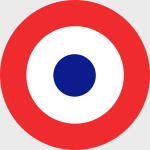DeAgostini DATW15 French Char B1bis Heavy Tank - Battle of France, Spring 1940 (1:43 Scale)
"A lost battle is a battle one thinks one has lost."
- Marshal Ferdinand Foch
 The Char B1 had its origins in the concept of a Char de Bataille conceived by General Jean-Baptiste Eugene Estienne in the twenties. On January 27th, 1926, it was decided to build three prototypes of a Char B, based on four earlier experimental vehicles (a FAMH-model, the FCM 21, the SRA and the SRB). Finished in 1930 these prototypes were again extensively altered to meet changes in specifications, outlining the concept of a Char de Manoeuvre. Neither Char de Bataille nor Char de Manoeuvre are official type designations; they refer to the tactical concepts only. The "B" in Char B does not refer to Bataille. On April 6th, 1934 the first order was made for seven tanks of a Char B1. The "B1" refers to the fact that there were other simultaneous projects to develop improved types: the Char B2, B3 and B B.
The Char B1 had its origins in the concept of a Char de Bataille conceived by General Jean-Baptiste Eugene Estienne in the twenties. On January 27th, 1926, it was decided to build three prototypes of a Char B, based on four earlier experimental vehicles (a FAMH-model, the FCM 21, the SRA and the SRB). Finished in 1930 these prototypes were again extensively altered to meet changes in specifications, outlining the concept of a Char de Manoeuvre. Neither Char de Bataille nor Char de Manoeuvre are official type designations; they refer to the tactical concepts only. The "B" in Char B does not refer to Bataille. On April 6th, 1934 the first order was made for seven tanks of a Char B1. The "B1" refers to the fact that there were other simultaneous projects to develop improved types: the Char B2, B3 and B B.
The Char B1 was manufactured by several firms: Renault (182), AMX (47), FCM (72), FAMH (70) and Schneider (32). Although it was the main producer, Renault had not exclusively designed the tank. Therefore the official name was not Renault B1 as often erroneously given. It was a very expensive tank to build: the per unit cost was about 1.5 million French francs. In France, at the time, two schools of thought collided: the first wanted to build very strong heavy tanks, the other a lot of cheap light tanks. Both sides managed to influence procurement policy to the end that not enough tanks were built of either category, to the exasperation of men like Colonel Charles de Gaulle who wanted to build more of the medium Char D2, with a third of the cost of the Char B1 bis, but armed with the same 47 mm gun.
Pictured here is a 1:72 scale replica of a French Char B-1 heavy tank that was nicknamed "Bourrasque" and fought during the Battle for France in May 1940.
Now in stock!
Dimensions:
Length: 6-inches
Width: 3-inches
Release Date: May 2022
Historical Account: "The Fall of France" - In World War II, the Battle of France, also known as the Fall of France, was the German invasion of France and the Low Countries, executed from May 10th, 1940, which ended the Phoney War. The battle consisted of two main operations. In the first, Fall Gelb (Case Yellow), German armored units pushed through the Ardennes, to cut off and surround the Allied units that had advanced into Belgium. The British Expeditionary Force (BEF) and many French soldiers were evacuated from Dunkirk in Operation Dynamo. In the second operation, Fall Rot (Case Red), executed from June 5th, German forces outflanked the Maginot Line to attack the greater French territory. Italy declared war on France on June 10th. The French government fled to the city of Bordeaux, and France's main city of Paris was occupied by the German Wehrmacht on June 14th. On the June 17th, Petain publicly announced France would ask for an armistice. On June 22nd, an armistice was signed between France and Germany, going into effect on June 25th. For the Axis Powers, the campaign was a spectacular victory.
France was divided into a German occupation zone in the north and west, a small Italian occupation zone in the southeast, and an unoccupied zone, the zone libre, in the south. A rump state, Vichy France, administered all three zones according to the terms laid out in the armistice. In November 1942, the Axis forces also occupied the zone libre, and metropolitan France remained under Axis occupation until after the Allied landings in 1944; while the Low Countries remained under German occupation until 1944 and 1945.









